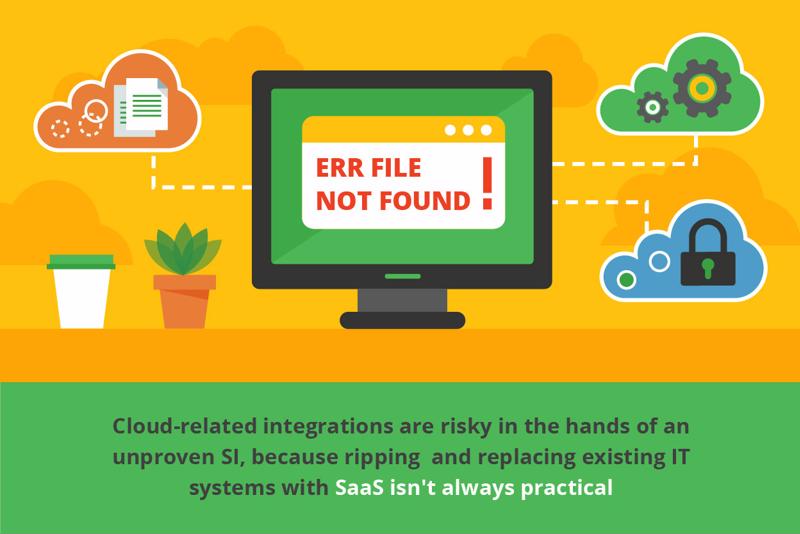When it comes to system integrators (SIs), there’s no shortage of options out there. But although many SI firms claim to have the technical chops and project management experience to oversee ambitious digital transformation plans spanning the supply chain, which ones can you actually trust?
Selecting the right SI requires considerable due diligence, given the high stakes for ensuring the success of an ERP overhaul or a major change to your supply chain management processes, not to mention the astronomical project failure rate. According to McKinsey, 70% of all system integration projects fail to achieve all of their goals.
What can you do to separate the good SIs from the bad? We’ve put together a few fundamental criteria to evaluate, in the form of questions, as you make your decision.
What do they specialize in and where have they have demonstrated proficiency?
You always want to find the SI with proven expertise in the specific technologies you’ll be working with, along with a solid track record on comparable projects. For example, let’s say you’re targeting an upgrade to the Oracle Cloud. It would make sense to focus on SIs that had strong relationships with Oracle as well as demonstrable success in transitioning customer environments to a the cloud.
The latter piece is critical. Cloud-related integrations are particularly risky in the hands of an unproven SI, because simply ripping out and replacing existing IT systems with SaaS isn’t always practical. In fact, it’s often expensive and highly disruptive. Seek SIs that can manage complex integrations of legacy and cloud infrastructure to create a sustainable solution for ERP or SCM.
What are they promising and does it sound realistic?
Overpromising is rampant in the SI world. It takes common forms such as:
- Claiming to have worked with large companies (e.g. Fortune 500 firms) but struggling to manage even a modest workload.
- Saying “yes” to virtually any request, no matter how difficult or complex.
- Not providing contact information for references who can verify the quality of their work.
Be on the lookout for these red flags. You don’t want to find yourself in a situation where an SI has overpromised and underdelivered, as the lost time and money can be significant. Be wary of suspiciously low quotes; an SI that underestimates your project from the outset is setting you up for disappointment and long delays.
Finally, perform research to learn about the SI’s past projects and what previous customers think of them. Would they recommend working with the SI?

Do they offer specific solutions for your industry?
Just as it’s important to see if an SI is proficient with certain technologies, it’s crucial to know how they approach your organization’s particular industry. For instance, let’s say you work in the life sciences sector. You are facing challenges including the emergence of personalized medicine for patients, rising R&D costs and shrinking margins.
In this context, you need to remake your supply chain to provide enhanced visibility and more efficient handling of regulated data. Entrusting such a pivotal project to an SI with no experience in the field isn’t a good option. Inspirage has experience in sectors including life sciences, retail, manufacturing and high tech, with customized solutions for each one.
What certifications do they have?
Industry certifications aren’t just distinctions that SIs earn for exemplary work. They also indicate that the SI is keeping up with changes in relevant standards and frameworks. Accordingly, the SI can offer the best possible service, with all of the right technical and security-related features.
Inspirage is a Platinum member of the Oracle PartnerNetwork and has received multiple awards for outstanding service. Customers across multiple industries have entrusted important ERP and SCM projects to the Inspirage team and been highly satisfied with the results — at a higher rate than the SI industry as a whole.
When working with Inspirage, you can expect integrated supply chain expertise and deep experience with the Oracle ecosystem. To learn more, visits our Resource Center, or contact a member of our team for additional information.